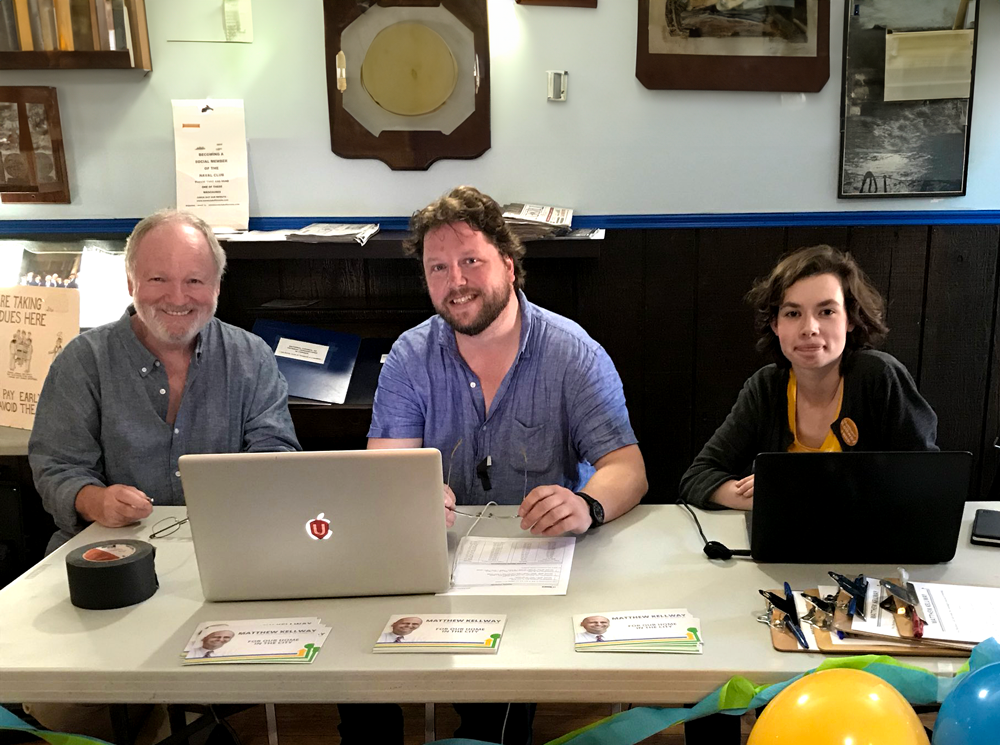Since 2007, I’ve been a volunteer on seven election campaigns at the federal, provincial, and municipal level. I have done most tasks that a small progressive urban campaign would need and I’d like to share four observations about local democracy in action.
Our election agencies should get more love
After witnessing the manufactured chaos in the U.S. election system since 2020 and beyond, we should feel lucky we have election agencies that conduct our elections with uniformity, transparency, and non-partisanship. They report directly to parliament, and we should be wary of anyone that suggests any of this be curtailed.
Whenever I have encountered election agencies at the local level, I experienced a totally supportive and accessible team of people who made sure every campaign got everything we needed, ensuring we knew and followed the rules. They were usually local residents themselves, working on contract.
Election signs should have more restrictions
Most everyone agrees election signs are a wasteful blight. They suck up volunteer time and require many teams to fulfill requests. A typical sign will cost $10 and up to produce, and with many thousands ordered, signs represent a large portion of the total expenditures permitted.
They are the only part of a campaign that needs a bunch of kit: stakes of all sizes, zip ties, screws, sledgehammers, mallets. Volunteers with gassed-up cars and trucks. A shared system to collect and track requests from multiple platforms. They eat up room in small campaign offices.
After delivering them, many need maintenance and replacement due to vandalism. Even when the election is over, you’re not done. You need to go pick them up and recycle them. Despite it all, no serious local candidate can expect to win without signs so long as their opponent will deploy them.
It doesn’t have to be this way. There are European democracies that heavily curtail the use of campaign signs. Visitors from Sweden, Portugal, Netherlands and elsewhere are astonished to see how we plaster our own properties and public lands with these things. Time to hit the gas on increased restrictions.
It’s not like West Wing
Some people seem to think election campaigns are a professional machine staffed by veterans whose job is to sway voters and out-manoeuvre opposing campaigns. I’ve been lucky to be a part of sophisticated campaigns with many moving parts and talented people, but at the local level, there is little resemblance to national campaigns depicted in popular culture.
In reality, most local campaigns’ energy is focused on doing three things: get the candidate’s name and values out in the world, identify supporters, and make sure they vote.
There will be a manager under contract, and perhaps some other workers brought in as election day draws near, but most everything is done by volunteers. Many will be doing this work for the first time.
The un-glamourous and low-tech still reign: signs, door knocking, phone calling, events, and bulk emails remain the primary ways to accomplish those three objectives.
People don’t know how much they want electoral reform
After all these experiences, declining voter turnout is depressing. “Wasted vote” is a phrase that is heard by every volunteer, even in close races. People tell us their vote doesn’t matter, and in many races, they’re not totally wrong. If we want more people voting, let us build a system that doesn’t punish new candidates and hand a win to the minority of votes (ie, proportional representation).
On the positive side, the massive transfer of energy, time, talent, and money I have seen in these last 17 years makes me hopeful for our local democracy.
Craig Pickthorne works in non-profit communications in Ottawa.


